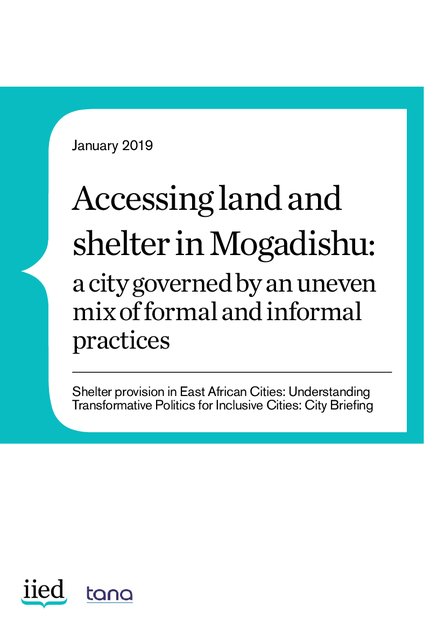
In Mogadishu, access to and ownership of land is a significant driver of conflict. Contestation over this resource continues to affect how Mogadishu’s residents acquire and own shelter and property, especially since establishing legal ownership and competing clan considerations complicate the situation. Disagreements over land and property are further fuelled by other factors such as parallel formal and informal governance and justice systems and high influxes of IDPs into the city, many of whom are from minority clans and marginalised ethnic groups, and who – politically – are considered to affect the clan configuration of the City. Mogadishu’s poor and vulnerable residents are most at risk in terms of access to secure shelter. Many of them, most notably the IDPs, live on land with high tenure insecurity. Lowincome groups and IDPs lack the networks, resources and ability to navigate the systems that facilitate access to land, shelter, finance and services. Entering into informal rental arrangements leaves them at risk of sudden and forced evictions.
Links
Resource collections
- Somalia humanitarian response
- UN Habitat - Urban Response Collection
- Urban Response - Urban Crisis Preparedness and Risk Reduction
- Urban Response Collection - Community Engagement and Social Cohesion
- Urban Response Collection - Economic Recovery
- Urban Response Collection - Environment and Climate Change
- Urban Response Collection - Housing, Land and Property
- Urban Response Collection - Urban Crisis Response, Recovery and Reconstruction
- Urban Response Collection - Urban Resilience